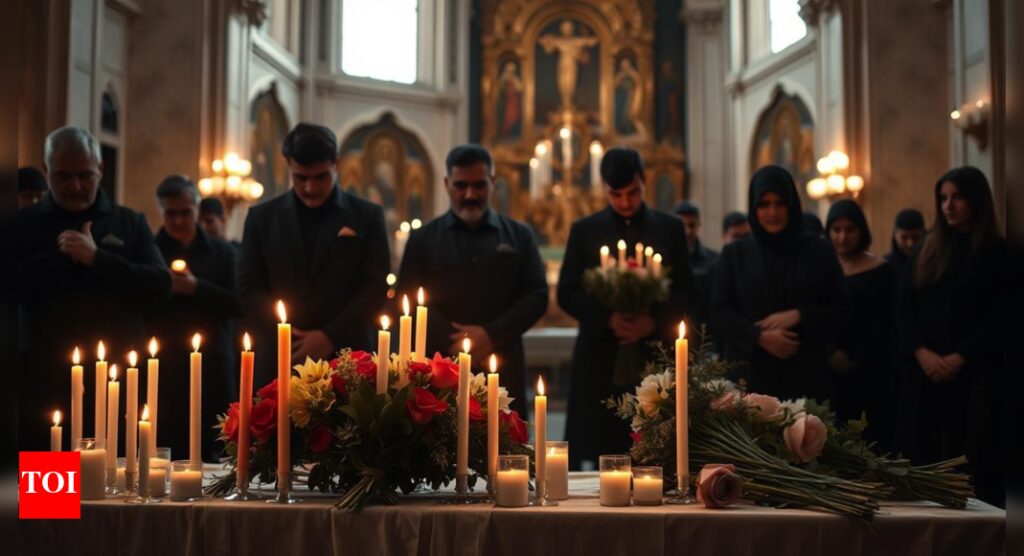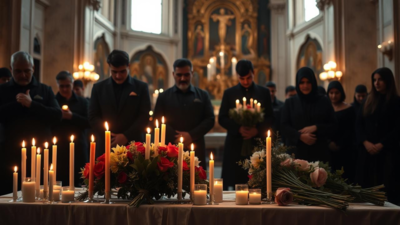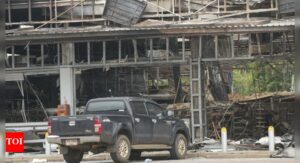Attack on Christians threatens Syria’s postwar cohesion

In an official statement issued immediately after a suicide bomber opened fire on worshippers before blowing himself up at a Christian church in Damascus, Syria’s government called the attack a desperate attempt to undermine national coexistence and destabilize the country. The Interior Ministry blamed the so-called “Islamic State” group for the attack, which killed 25 people and injured 63.In neighboring Lebanon, President Joseph Aoun called for “necessary measures to prevent its recurrence, provide protection for places of worship and their visitors, and ensure the safety of all Syrian citizens, regardless of their religion, as the unity of the Syrian people remains the foundation for preventing discord.”Leaders of the Assembly of Catholic Ordinaries of the Holy Land in Jerusalem said: “There is no justification — religious, moral, or rational — for the slaughter of innocents, least of all in a sacred space. Such violence under the guise of faith is a grave perversion of all that is holy.”‘Repeated violence’: Michael Bauer, the head of the Beirut office of Germany’s Konrad Adenauer Foundation, told DW that the attack did not just target the worshippers at the church, nor Christians broadly, but was meant to send a message. “There has been repeated violence against religious minorities in recent months, such as the Alawites and the Druze,” said Bauer, whose foundation is closely linked to Germany’s conservative Christian Democrats.“The latest attack, as terrible as it is, is therefore not directed solely against Christians, but against the social fabric of the entire country as well as the transition process,” Bauer said.Sidra, a 20-year-old Christian in Damascus who asked that her full name not be used, told DW that she knew multiple victims of Sunday’s attack. “My mother’s condition is somewhat stable,” Sidra said, “but I lost my friend in the incident.”She said officials must act. “We send a message to the Syrian government to provide us with safety because, if the situation remains as it is, Syrian Christians may no longer be able to live under such conditions,” Sidra said. “If safety is not ensured, Christians in Syria may rise against this government.”Building representative government: President Ahmad al-Sharaa has promised an inclusive government. Bauer said he and his officials would likely be aware that Syria needs a fundamental transformation process that encompasses all population groups.Members of the many militias who have become officials or agents of Syria’s security forces may see things differently, however, Bauer said. “They rather want to impose their own worldview, which doesn’t include Alawites, Christians, Druze or other infidels in the new Syria,” he said. “This poses a major challenge,” he added.Since the overthrow of the government at the end of 2024, foreign fighters who joined the revolutionary forces in Syria’s long civil war have been repeatedly accused of violence against minorities. However, the underfunded government has had difficulty developing security forces. The Germany Trade and Invest business information service estimates that Syria’s economy will continue to shrink in 2025, for the third year in a row.Before the war began in 2011, Christians made up about 7% of Syria’s population. Nearly a decade and a half of departures have reduced the proportion to about 2%, according to a report by Vatican News.Nawal, a 58-year-old who was injured in Sunday’s attack and asked that her full name not be used, told DW that the violence would ultimately affect all Syrians. “We are one people, Christians, Muslims and people of all religions and denominations,” Nawal said. “And whoever committed this act — this time it hit Christians, but tomorrow it will hit every other Syrian.”Syria: Multireligious, multiethnic: Though there are predominantly Christian neighborhoods in Damascus and villages throughout the country, Bauer said adherents are widely integrated with Syria’s other religious communities.“Christians are also present throughout very different parts of the country,” Bauer said. “Unlike the Druze, for example, they live side by side with citizens of other religions. And of course, this has also created a certain sense of closeness.”“Syriais our country,” Sidra said. “We will stay if there are no sectarian provocations or insults to other beliefs,” she added.“But what happened on Sunday in the church confirms the presence of sectarianism,” Sidra said, “and such acts make us wonder if we need to leave Syria one day.”








